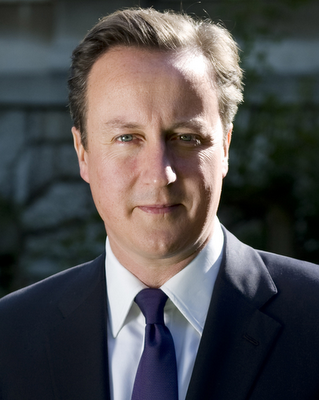I'm guessing most Green Party members were shocked by the news last night that Caroline Lucas is
not seeking re-election as the Party leader. I also suspect that our political opponents will be relieved. As party leader Caroline played a blinder as an advocate for the Party's policies of social justice, economic regeneration, fighting climate change, and support for the public sector. As leader, she is going to be sorely missed, and hard to replace, so perhaps I should have said - "who next?"
 |
| Caroline Lucas |
After the local elections, and the news of Caroline's departure as leader, Green Party members need to take stock of where we are, before thinking about what they want from a new leader. We are still a minority party and, although we punch well above our weight, we have a long way to go before we can get into government, even as part of a coalition. We keep making gains in local elections but we have failed to make a national breakthrough despite our anti-austerity message and support for jobs and public services. Many people in the party are committed to plugging away, doing the hard work of leaflet delivering and canvassing, and, whilst this is necessary and commendable, on its own it is not enough.
What the Green Party needs
is a strategy which will increase both membership and support in the country as well as energising many of our less active members. What's worrying about the GPEW statement about Caroline (link above) is the talk about attracting disillusioned Liberal Democrats, because that is not the best way forward for GPEW. Why? because the Liberal Democrat Party is neither radical nor green, despite what many of its current and ex-members might like to think. It is an entirely conventional, grey, neoliberal party committed to austerity and the 'business as usual approach' so often
condemned by Caroline Lucas herself.
Depressingly, there are those in GPEW who think entirely in conventional political terms and would like to see GPEW replace the Liberal Democrats in Westminster. This is delusional politics for two main reasons: Firstly, the last thing the UK needs is another Liberal Democrat Party, even if it was a fairer, greener version, and the voters won't be fooled by any attempt to do this; Secondly, this is a potentially a move to the right, to what some people would see as the centre ground, though centre-right would be more accurate, and risks the GPEW falling into the same trap as the Irish Greens did - I posted previously about this trap
here.
The way forward is for the Green Party t
o strengthen its position as a party of social justice and radical economic change. By the latter I mean an explicit rejection of neoliberalism, austerity, corporate domination, and the democratic deficit in the EU, and a commitment to the alternatives such as the Green New Deal, ending privatisation and de-regulation, saving the NHS, ending tuition fees, government planning, and control of the banks. What we should be aiming to do is to attract support from the huge pool of young people, many of whom have never voted, and who want real change, and access to jobs. We should also be attracting support from the millions of ex-Labour voters who believe in the public sector and social justice. And we need to do much better in attracting support from the ethnic minorities. These are all potential supporters who are more likely to be attracted by a party offering a radical alternative than many of the disillusioned Liberal Democrats.
As things stand, Ed Millband is likely to be Prime Minister in 2015, if not before. But this will be a victory by default. People will vote Labour to get the Tories out, not because they love Labour, but in the hope that things will be less worse than they are now. There is still plenty of room for a radical party of social justice at the next general election. We are more likely to make gains then, by going down the route I have described, than the dead-end advocated by those who see replacing the Liberal Democrats as the best bet.
One of the things those on the right of GPEW, who oppose a more radical Party direction, need to come to terms with, is that that green, environmental politics and 'free' market capitalism
are ultimately incompatible. This is the elephant in the room, and is central to the whole debate about what kind of Party the GPEW should be. The kind of society we Greens want, is more democratic, more fairly regulated, more local, more community based and truly sustainable, and this is anathema to the corporations,
because they understand fully that such a green economy would exclude both them and their destructive practices. That is why people like Nigel Lawson of the Global Warming Policy Foundation (
GWPF) expend so much energy and cash railing against climate change. And that is why so many commenters in
CiF rage about Greens being eco-fascists. They get it even if some Greens don't. As I said in a previous
post:
".....you have to ask - why is it that climate change has become a left vs right issue over the past decade or so? Why do right-wingers like Nigel Lawson, of the GWPF, Tory MPs, and Ruth Lea seem to think that all environmentalists are lefties and climate change is a left-wing plot to bring about an eco-socialist world? Why do they object so strongly? The answer is simple - capitalism and corporate profits. The 'free' market right have recognised that climate change is a potential threat to established big businesses and capitalist accumulation, which relies on compound growth."
If Ruth Lea and co. think like that, then it makes Green politics radical and anti-capitalist
whether you like it or not. Don't believe me? Then read this excellent
article by Naomi Klein, "Climate vs Capitalism", which sums up why capitalists are out to kill climate change
and green politics. Here is a telling quote:
"The [climate change] deniers did not decide that climate change is a left-wing conspiracy by uncovering some covert socialist plot. They arrived at this analysis by taking a hard look at what it would take to lower global emissions as drastically and as rapidly as climate science demands. They have concluded that this can be done only by radically reordering our economic and political systems in ways antithetical to their “free market” belief system."
There is no route to a green future in going down the same political cul-de-sac as the Liberal Democrats, and no point in wasting time with the illusion that capitalists will 'see the light' and suddenly become socially and environmentally responsible. In addition, as I've made clear in previous posts, neoliberal capitalism will never revive our economy, and those that believe that existing economic systems can be made to work in the face of climate change are
doomed to disappointment and failure.
Finally, there was an interesting
post in the Guardian today by party colleague Jim Jepps entitled "Caroline Lucas stepping down is good for the Greens". I do hope he is right. For my money there is only one Party member who has the track record and credibility to replace Caroline Lucas as leader. I just hope he is willing and able to stand.
Footnote:
I just wanted to update this post to clarify some of the points I made in the light of comments I have received here and elsewhere. As for Lib Dems:
1. Lib Dems may be active and disillusioned but do they really share our values? - I don't think so. I'm sure that many ex-Labour supporters and members have values which are closer to our own. I can't pretend this is scientific but it is based on my 40 years of involvement in politics. I am, of course, not opposed to ex-Lib Dem supporters or members who share our values joining GPEW - In fact I would welcome them.
2. Following on from 1; Five million voters deserted Labour from 2005 onwards, there are over 1 million unemployed people under 25, and many others who are politically disengaged. We also need to reach out to ethnic minority voters. This is a much larger pool of people than disillusioned Lib Dems and these are people we should be targeting. Targeting Lib Dems is a very limited approach for a party that wants to make a breakthrough and shows a lack of ambition as far as I'm concerned.
On Capitalism:
If you have read other posts on this blog you will know that I have been careful to distinguish between "capitalism" and the "private sector". By capitalists I mean people who own the means of production such as Branson, Murdoch etc, people who control and own the the corporations. However, I have no problem with the "private sector". Your local newsagent, pub landlord, tenant farmer, co-operative, and numerous other small businesses etc etc are not capitalists. I welcome the contribution these people make to our economy, in fact, I think it is essential. The problem of "capitalism" centres around the power and sheer social, economic, and environmental destructive capacity of corporations and financial capitalism, including the banking sector. If we want social justice and to fight climate change and deal with resource depletion we will have to move away from the current "capitalist" model which is unsustainable in any case, as I have argued above, and in other posts.
A key part of the purpose of this blog as far as I am concerned is to share ideas and stimulate debate so I welcome both comments that are supportive, and those that are critical, the latter as long as they are constructive and deal with the arguments. I don't publish comments from people who are simply out to slag me off or be abusive.











